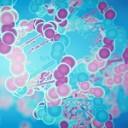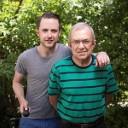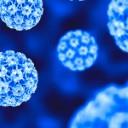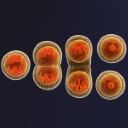-
Palliative Care Pays Off
Patients with advanced cancer who receive palliative care tend to live longer and have better quality of life than those who do not receive this care.
by Cheryl Platzman Weinstock
-
Crowdfunding for Cancer
Researchers found that millions of dollars are donated on fundraising sites to support ineffective and even harmful treatments.
by Jon Kelvey
-
An Uncommon Partnership
Through the Angiosarcoma Project, researchers are partnering with patients to learn about a rare cancer.
by Ashley P. Taylor
-
Why I Put Down My Camera
A professional photographer shares advice on living in the moment after caring for his father, who had stage IV lung cancer.
by Jay Perry
-
Vaccinating Against Cancer
The human papillomavirus vaccine can significantly cut recipients' risk of several types of cancer. So why are vaccination rates relatively low in the U.S.?
by Brad Jones
-
Sacrificing for Care
A study finds that patients with cancer not only say they are willing to make financial sacrifices for treatment but actually have done so.
by Marilyn Fenichel
-
The Genetics of Metastatic Cancer
The multiple tumors in patients with metastatic disease share key genetic traits, a sequencing study shows.
by Anna Azvolinsky
-
A Sense of Purpose
In a Facebook Live discussion about When Breath Becomes Air, Lucy Kalanithi talks about safeguarding a person’s identity in the face of terminal disease and shares tips and resources for caregiving.
by Marci A. Landsmann
-
The Roots of Rural Health Disparities
New research shows that rural cancer patients have the same health outcomes as urban cancer patients so long as they are involved in a clinical trial.
by Cheryl Platzman Weinstock
-
Learning to Share
At first, I wanted to hide my cancer diagnosis. My son showed me what a mistake that was.
by Lenn Robbins
Cancer Talk
Treating HER2-ultralow Breast Cancer
FDA approval expands treatment options for people with metastatic breast cancer that expresses minimal levels of HER2.
by Sandra Gordon
Lessons Learned as a Caregiver and PatientAfter caring for her husband during his cancer treatment, Miriam Díaz-Gilbert was prepared to face her DCIS diagnosis.
by Miriam Díaz-Gilbert
Screening Options for People With Dense BreastsReports on breast density inform women of their status but raise questions about what to do next.
by Robin Roenker
Injection Immunotherapies Get FDA ApprovalGiving immunotherapy drugs as injections, rather than intravenously, means patients can spend less time in the hospital or treatment center.
by Laura Gesualdi-Gilmore














